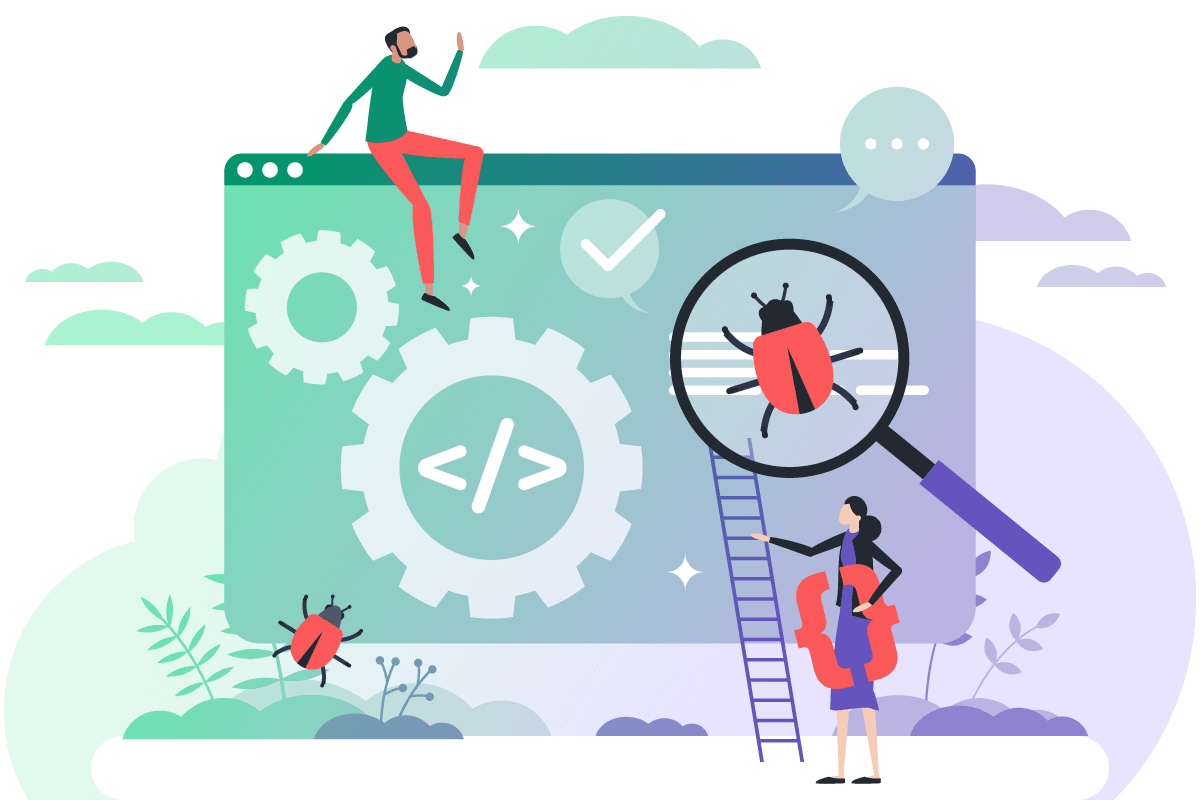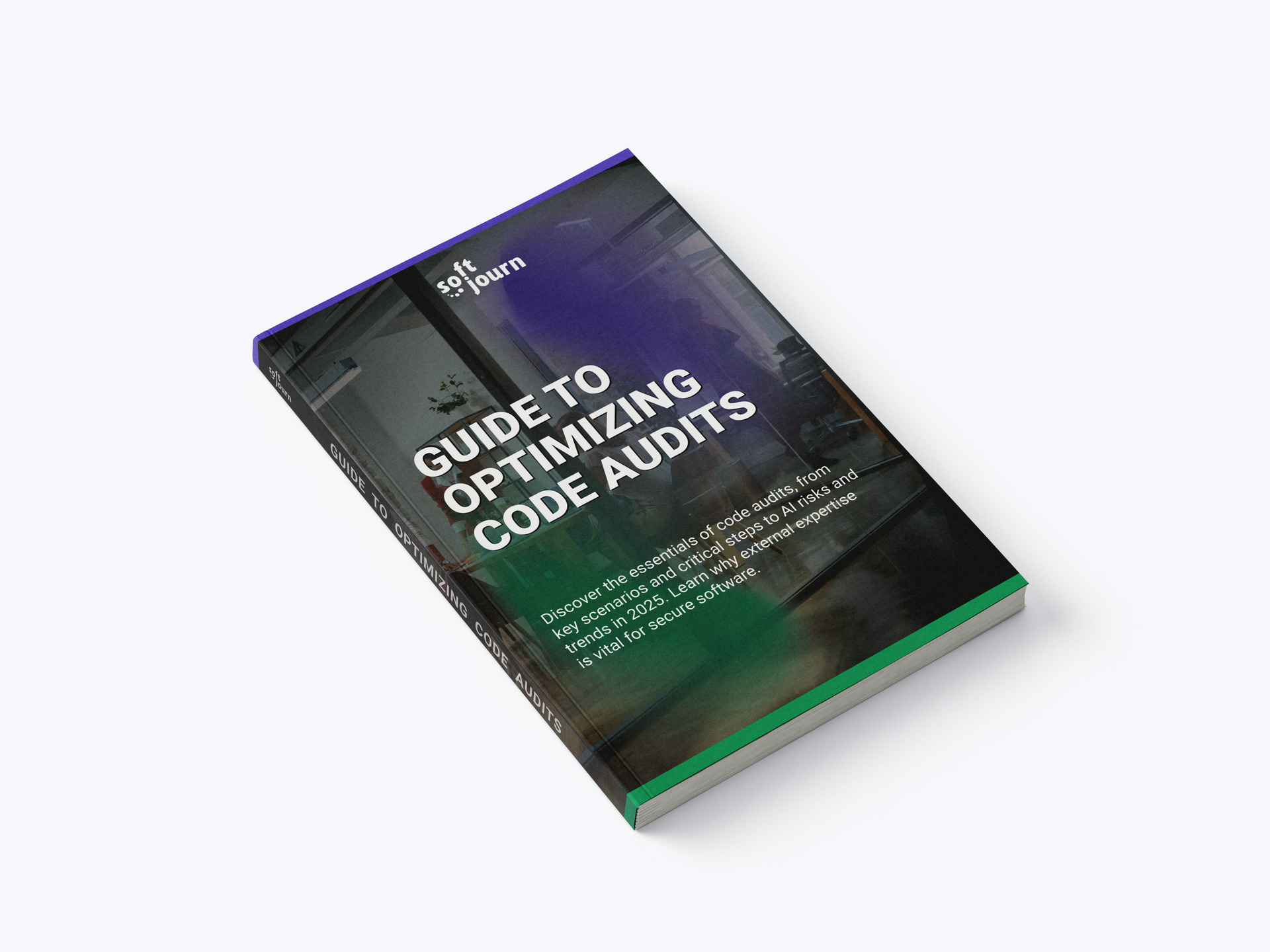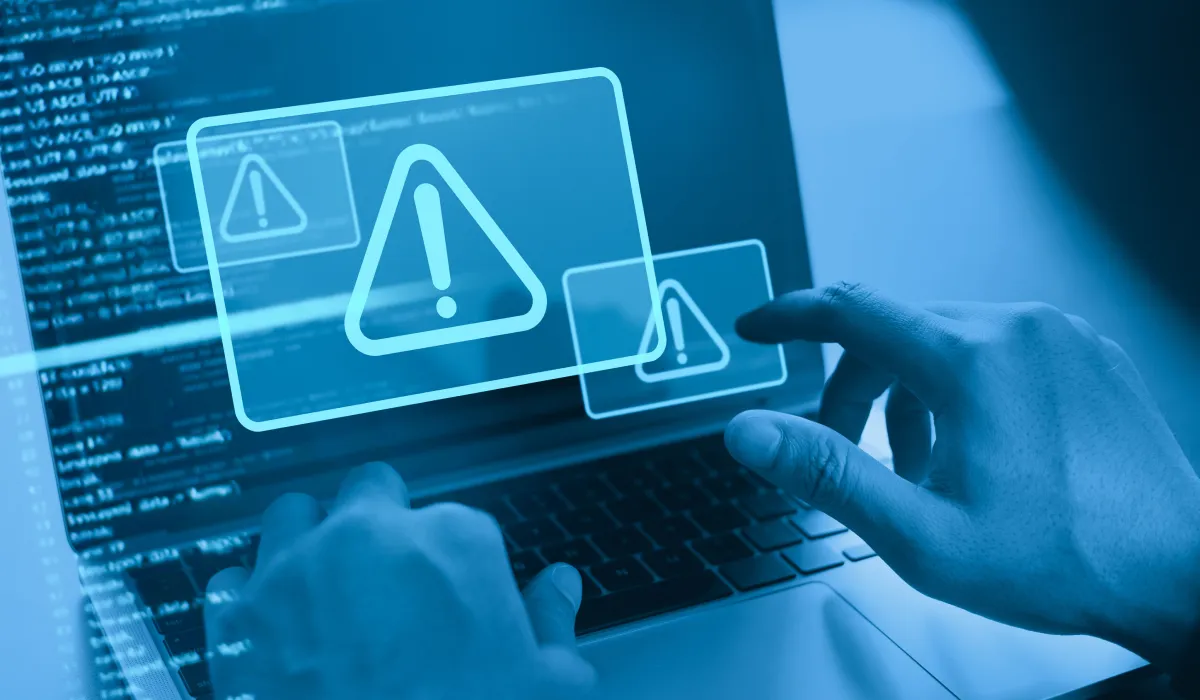In 2024, approximately 50,000 mergers and acquisition (M&A) deals were completed worldwide, with the total value of M&A transactions reaching $3.5 trillion.
In this dynamic landscape, where digital assets play a pivotal role, code is the backbone of every software and product. Whether you’re buying or selling a business, conducting a thorough code audit is essential for ensuring the integrity and value of the digital assets involved.

The Necessity of Code Audits Before You Buy or Sell Your Business
A code audit is a process that involves reviewing a software's source code to identify and fix any vulnerabilities, bugs, or other issues that may pose a risk to the security and performance of the product.
Understanding Code Audits
What is a Code Audit?
A code audit is a thorough examination of a software's source code, performed by a professional code auditor or an auditing service. A code audit expert helps in identifying weaknesses, vulnerabilities, and any other potential issues that may exist within a software's codebase.
The auditor will review thousands of lines of code, checking the code structure, adherence to programming conventions, and overall code quality.
The Importance of Code Audits
A code audit is important as it allows businesses to ensure that their software is robust, secure, and free from any potential vulnerabilities. It ensures that the codebase adheres to best practices and industry standards, making it easier to maintain and upgrade the software in the future.
A code audit also helps in identifying performance bottlenecks and other issues that may affect the scalability of the software. Most of all, a code audit gives you peace of mind that your software is built using high-quality code.

Benefits of Code Audits
Identifying Vulnerabilities and Security Risks
One of the primary benefits of a code audit is the ability to identify vulnerabilities and security risks within a software.
By thoroughly analyzing the source code, the auditor can pinpoint areas that may be susceptible to hacking or other malicious activities. They can then suggest and implement appropriate measures to address these risks, ultimately making the software more secure.
Improving Code Quality and Performance
A code audit helps in improving the overall quality and performance of software. During the review process, the auditor can identify areas where the code can be optimized, making it faster and more efficient.
This optimization can help enhance the user's experience and reduce any bottlenecks that may hinder the software's performance.
Ensuring Compliance with Industry Standards
Compliance with industry standards is crucial for any software product. A code audit ensures that the software adheres to these standards, whether it's in terms of security, privacy, or other regulatory requirements. This compliance not only protects the business from potential breaches but also helps in building trust with customers and stakeholders.

Software Code Audit Process
Step 1: Planning and Preparation
The first step in a code audit process is planning and preparation. This involves gathering all the necessary documentation, understanding the software's architecture, and defining the scope of the audit. It's important to set clear goals and objectives for the audit to ensure that all aspects are thoroughly examined.
Step 2: Source Code Analysis
The next step is the actual analysis of the source code. Using specialized analysis tools, the auditor carefully examines the codebase, looking for potential vulnerabilities, bugs, or other issues. They analyze both the front-end and back-end code to ensure a comprehensive review of the software.
Step 3: Identifying Software Issues and Vulnerabilities
During the source code analysis, the auditor identifies any issues, vulnerabilities, or areas where the code can be improved. They create a detailed report outlining all the discovered issues along with recommendations for resolving them. This report serves as a roadmap for fixing the identified problems.
Step 4: Reporting and Recommendations
After completing the code audit, the auditor prepares a comprehensive report summarizing the findings and recommendations. This report is shared with the development team and stakeholders, highlighting the areas that need immediate attention and providing guidance on how to address the identified issues. The development team can then prioritize the fixes based on the severity and impact on the software.

Choosing a Code Audit Service
Factors to Consider
When choosing a code audit service, there are several factors to consider. First and foremost, look for a service provider with a proven track record and expertise in conducting code audits. Consider the reputation of the auditor or the auditing service and their experience in the industry. Additionally, consider the cost, the timeline for the audit, and the level of support provided throughout the process.
Questions to Ask Potential Service Providers
Before engaging a code audit service, it's important to ask a few questions to ensure they are the right fit for your business. Ask about their code audit process, the tools and methodologies they use, and how they handle the reporting and recommendations. Inquire about their experience with similar software products and whether they have any specific expertise in your industry.
Code Audits for Buyers and Sellers
Importance for Buyers
If you are considering buying a business, conducting a code audit is crucial. It allows you to assess the quality and security of the software you are acquiring. A code audit can uncover any potential risks or issues that may impact the value and future growth of the business. It gives you the necessary insights to make an informed decision before investing your resources.
Importance for Sellers
For sellers, a code audit is equally important. It helps in showcasing the quality of the software product to potential buyers, increasing its value and credibility. It can also uncover any hidden issues or vulnerabilities that, if left undiscovered, may surface after the sale and damage the reputation and trust of the seller.
By conducting a code audit before selling, the seller can proactively address any concerns and ensure a smooth transition for the buyer.

Things to Keep in Mind Before You Carry Out a Code Audit
- Objectives: Clearly define the objectives of the code audit, such as identifying security vulnerabilities, improving performance, or ensuring compliance with coding standards.
- Scope: Determine the scope of the audit, including which specific modules or components of the codebase will be audited. This will help focus efforts and ensure a thorough examination.
- Resources: Allocate the necessary resources, such as time, budget, and personnel, to conduct the audit effectively. This may involve assigning skilled developers or hiring external consultants with expertise in code auditing.
- Code documentation: Review any available documentation, including design documents, specifications, and coding guidelines. This can provide valuable context for understanding the codebase and identifying potential issues.
- Communication: Ensure effective communication with the development team throughout the audit process. Discuss findings, provide recommendations, and collaborate on developing an action plan to address identified issues.
Remember that code audits are an ongoing process rather than a one-time event. Regularly assessing and improving the codebase can help maintain code quality, enhance security, and support efficient system performance.
Need Help with the Code Audit Process?
A well-executed code audit can uncover hidden issues and pave the way for improved software performance, while poor-quality code audit services can waste resources and just confuse you more.
Entrust Softjourn with your manual code audit and feel confident you will have perfect code before any merger, acquisition, or other business opportunity.
Discover our Code Audit Consulting Services to discover how we can help you enhance your code's quality and security.

Final Word
When it comes to digital product development, a code audit is an essential step before buying or selling a business. It not only helps identify potential vulnerabilities and security risks but also improves overall code quality and performance.
By ensuring compliance with industry standards, a code audit can protect the business from breaches and build trust with customers. Whether you are a buyer or seller, a code audit provides valuable insights that can make or break a deal. Invest in a code audit and make your product development.
FAQ
Q: What is a code audit?
A: A code audit is a thorough examination of the source code of a software application, usually done by a qualified developer or a team of developers. It involves analyzing the code to identify any security vulnerabilities, outdated code, or potential issues that may affect the performance, security, or maintainability of the software.
Q: Why is a code audit necessary before buying or selling a business?
A: When buying or selling a business, the digital product development aspect plays a critical role in determining its value. A code audit helps in assessing the health of the application’s source code and identifying any potential risks or liabilities associated with it.
It allows both parties to make an informed decision based on an accurate understanding of the code and its implications on the business.
Q: What Kind of Audits Are There?
Code Audit – A code audit involves reviewing the source code of a software application to identify security vulnerabilities, inefficiencies, and adherence to best practices. This process helps uncover potential bugs, improve maintainability, and ensure compliance with coding standards, making it a crucial step before launching a product or after a security breach.
Technology Audit – A technology audit assesses an organization’s IT infrastructure, software systems, and digital assets to evaluate security, performance, and compliance. It helps identify outdated technologies, security risks, and inefficiencies, ensuring that the organization’s tech stack aligns with its business objectives and industry standards.
Startup Audit – A startup audit evaluates the core aspects of a startup, including its business model, financials, product development, and scalability. This type of audit helps identify legal, operational, and market risks, providing investors and stakeholders with insights into the startup’s viability, growth potential, and areas for improvement.
Architecture Assessment – An architecture assessment examines the design and structure of a system, ensuring it meets scalability, security, and performance requirements. It helps organizations optimize their software or infrastructure, improve efficiency, and align with industry best practices, making it essential for long-term system stability and growth.
Q: How can a code audit save time and money?
A: A code audit can save time and money by identifying any technical or security issues in the code early on. By catching and addressing these issues before they escalate, businesses can avoid costly repairs, downtime, or legal liabilities in the long run.
Additionally, a code audit may also reveal opportunities for optimization and streamlining of the code, leading to improved performance and efficiency.

Q: What are some common issues that a code audit can uncover?
A: A code audit can uncover a variety of issues such as security vulnerabilities, deprecated or flawed code, performance bottlenecks, lack of documentation, poor coding practices, unused code, and potential risks that may impact the maintainability and scalability of the software.
Q. What if I need a Comprehensive Software Audit?
Beyond helping the quality of your codebase with our code audits, Softjourn offers a comprehensive architecture assessment that will give you peace of mind that your software will perform the way you need it to.
We also offer QA Audits where we evaluate your software development and testing processes and ensure they are up to par.
Q: What is the difference between a manual code audit and an automated code audit?
A: A manual code audit involves a skilled developer manually reviewing the code to identify issues, vulnerabilities, and areas of improvement.
On the other hand, an automated code audit relies on specialized tools and software to analyze the code for common issues, adherence to coding standards, and potential vulnerabilities.
While automated code audits can provide a quick overview, they may not capture all nuances that a skilled human eye can spot during a manual review.
Q: How long does a code audit typically take?
A: The duration of a code audit can vary depending on the size and complexity of the codebase. On average, a code audit may take anywhere from a few days to several weeks.
Factors such as the availability of documentation, code quality, and the thoroughness of the audit process can also influence the timeline.
Q: What should businesses expect from a code audit report?
A: A code audit report is typically a detailed document that summarizes the findings of the audit. It includes an overview of the codebase, identified issues, their severity, recommendations for improvement, and suggested next steps.
The report should provide actionable insights and guidance for addressing the identified issues to enhance the overall quality and security of the code.
Q: Is it worth checking the frontend code during a code audit?
A: Definitely! The frontend code is an integral part of any software application, and its quality and security can significantly impact the user experience and overall performance of the application.
Therefore, it's essential to include frontend code review as part of the code audit process to ensure its adherence to best practices, optimization, and compatibility across different devices and browsers.
Q: Can code auditing tools replace manual code audits entirely?
A: While code auditing tools can be valuable in identifying common issues and providing a quick overview of the code quality, they cannot replace the critical thinking, expertise, and nuanced judgment that a skilled developer brings during a manual code audit.
Manual code audits are necessary to thoroughly understand the code, its context, and the specific requirements of the business.
Q: Can a code audit benefit a business even if they already have a functioning product?
A: Absolutely! Code audits are not limited to new or development-stage projects. Even if a business already has a functioning product, a code audit can still provide valuable insights into the quality, security, and maintainability of the codebase.
It can help identify areas for improvement, optimize performance, and ensure the code meets industry standards and best practices, thereby future-proofing the application and supporting the growth of the business.
















